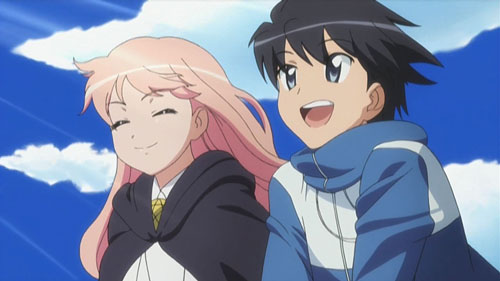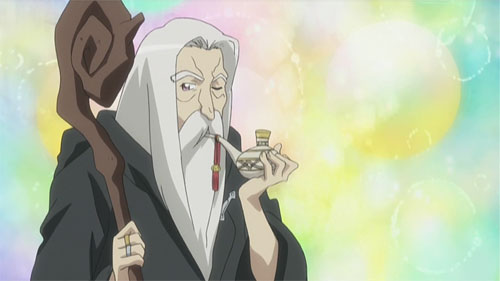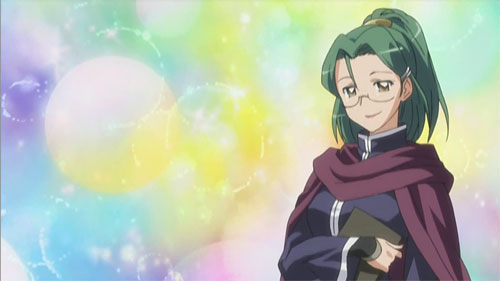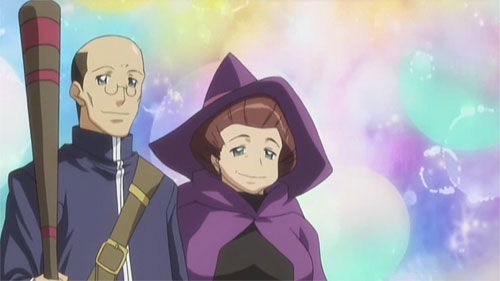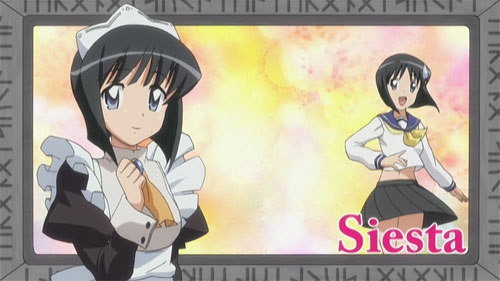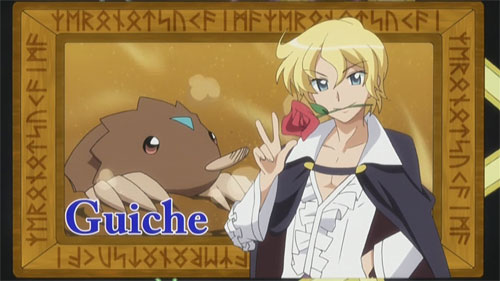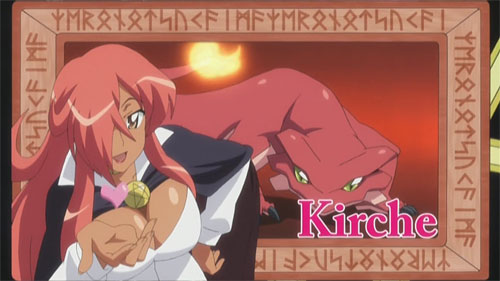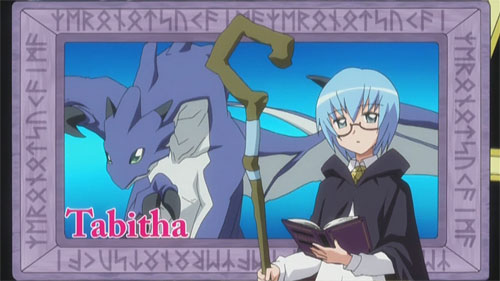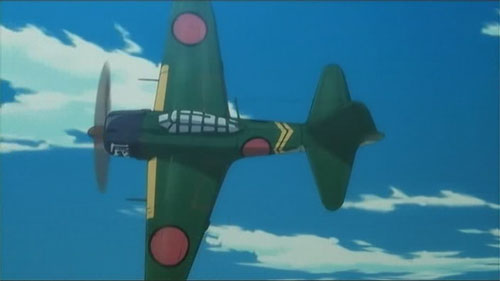Having completed its 13-episode run, what can I say about Zero no Tsukaima?
The Good
Along with Haruhi Suzumiya no Yuutsu, this is one of that rarest of breeds, a made-for-television animated series that has both high production value and a solid idea of its own beginning, middle, and end. The creators Zero no Tsukaima started with a reasonable introduction, Lousie meeting/summoning Saito, develops a serious conflict through the introduction of Crumbling Fouquet and the Reconquista, and wraps things up rather tidily with a big climax and appropriate denouement.
The supporting cast is well-presented, with the faculty of the Tristien Magic Academy being appropriately authoritarian and capable, but quirky enough to be interesting. Louise’s classmates each make good character foils for her, and each have qualities that recommend them as interesting characters unto themselves. Kirche and Guiche each have back-stories that adequately place a context around their personalities without weighing the viewer down with any distracting plot baggage.
Zero no Tsukaima also features what may be the least obnoxious pretty young maid in recent memory. Siesta is refreshingly unobtrusive, plays a prominent role as an instigator of various confrontations that clarify the nature of Saito and Louise’s relationship with each other, has a role in foreshadowing aspects of the primary plotline, and is an all-around welcome addition to the supporting cast.
Production values throughout were excellent, with most details been attended to quite handily. Good use is made of perspective and camera focus, which is something lacking in most made-for-television anime.
The Bad
Zero no Tsukaima is over-laden with cliches. Guiche is a curly-haired blonde bishounen with a frilly shirt and a red rose in place of a magic wand, representing every detestable girly-man (heterosexual or otherwise) to ever appear in any medium. Kirche is the dark-skinned, busty, sexually-aggresive floozy with a compulsive need to call the main character “darling” and throw herself at him whenever it is least convenient. Tabitha is the stereotypical introverted bookworm, socially-withdrawn, glases-wearing child prodigy reminiscent of a fusion of roughly 500 reclusive bookworm characters before her.
The ending is almost exactly what you’d expect by the time you finish watching the opening credits for the first time. Nothing daring here, just a safe-bet, maybe-there-will-be-a-sequel ho-hum dramatic last-minute decision to save the universe/galaxy/world/kingdom from destruction/invasion/slavery/powdered milk/whatever followed by a nearly-epic battle in which a character rises to the occasion, tapping into untold (but heavily foreshadowed) depths of power to turn the tide, yadda yadda yadda.
I was very strongly disappointed in the military capacity of these magic-wielding nations. Their entire noble caste consists of sorcerers, but only a handful of silly wind-magic spells and a dozen small-scale dragons fighting against some not-terribly-impressive griffon-riders while some ineffectual slobs on horseback look on. Frankly, they deserved to get overrun.
I mentioned earlier that Guiche and Kirche have appropriate back-stories. I didn’t leave Tabitha out of the list by mistake there: her backstory is heavy-handed and wastes the better part of an episode in the telling. I suppose I can understand that this provided a wallflower of a character with a glimmer of interest, but the only practical purpose it serves in relation to the rest of the story is to show how good of friends she is with Kirche, another member of the supporting cast. It illuminates nothing about the main thrust of the story, nor about Louise or Saito.
The Ugly?
Yeah, they went there. That’s a Japanese Zero. In Zero no Tsukaima. Hoo, boy. I weep for our future.
Overall Impression
A fun show, well-executed in most ways. Zero no Tsukaima has a simple plotline and makes no pretensions to the contrary. Each episode is a good way to spend twenty-three minutes or so without ever having to worry about keeping track of intricate details, complex character motivations, challenging ethical dilemmas, or anything of the sort. If somebody has the presence of mind to license this title, wait for the box set DVD release, it’ll be worthy addition to to your collection (provided you aren’t trying to impress anybody with your excellent taste). I initially gave this title a C+, finding the premise to be “lame,” whereas in hindsight it is merely simple. Simple isn’t bad, so I rate this at a solid B.
